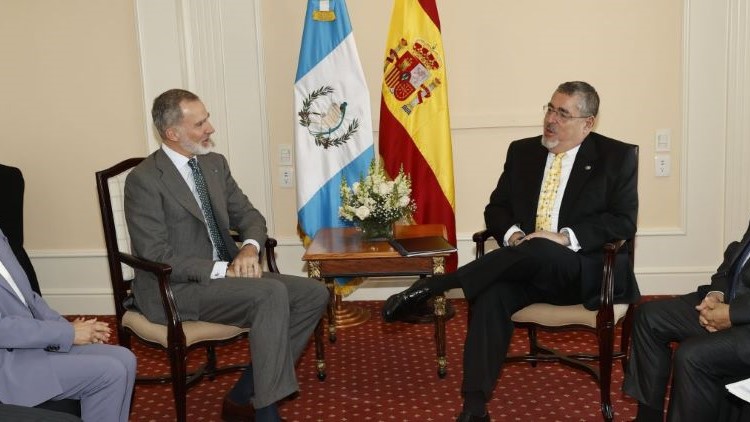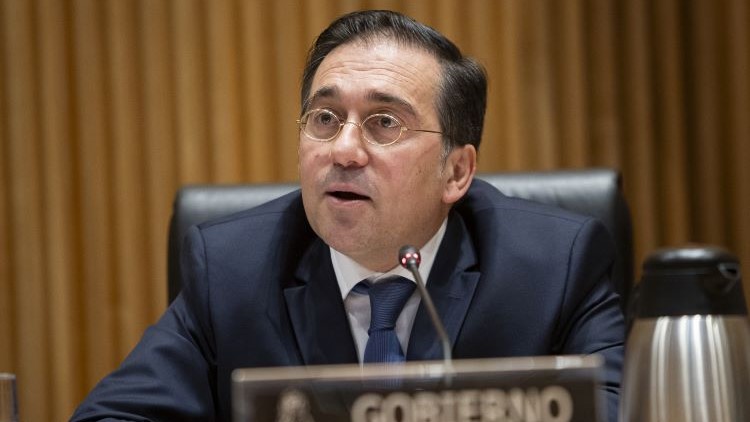Eduardo González
The new president of Guatemala, Bernardo Arévalo de León, will make an official visit to Spain next week as part of his first tour of Europe since he took office on January 14.
As Arévalo himself explained at a press conference on February 8, the tour will include several European countries, including Spain, in response to the invitation extended to him by King Felipe VI during his trip to Guatemala on the occasion of the inauguration. of the new president.
Arévalo will leave his country on February 15 and the tour will begin the next day in Germany, where he will attend the Munich Security Conference. Subsequently, he will travel to Belgium (where he will meet with members of the European Commission), Switzerland (to meet with leaders of the International Olympic Committee, since Guatemala is suspended from the Olympic Games due to a political controversy with the organization), France (where will be received by President Emmanuel Macron and Audrey Azoulay, director of UNESCO) and Spain, where the tour will conclude.
The visit to Spain will take place from February 21 to 23 and will include an interview with the King, with whom “the issues on the bilateral agenda” will be discussed, as explained by the president at the press conference. The rest of the agenda in Spain has yet to be defined, according to the Social Communication Secretariat of the Guatemalan Executive, but it seems certain that Arévalo will be received by the King and the President of the Government, Pedro Sánchez, on February 22.
Likewise, Arévalo will participate in the Spain-Guatemala Business Meeting, organized on February 23 in Madrid by the Spanish Confederation of Business Organizations (CEOE), the Secretary of State for Commerce and the Chamber of Commerce of Spain, in collaboration with the Embassy of Guatemala in Spain. The meeting will be aimed at Spanish companies with interests or presence in Guatemala and will address existing investment opportunities in key sectors of the Guatemalan economy, such as pharmaceuticals, food, electronic devices, textiles, chemical infrastructure and agri-food, among others.
According to the local press, the relationship with Spain is of utmost importance for the new Guatemalan Government. Last December, the Spanish Government expressed its support for Arévalo after the actions of the Public Ministry of Guatemala to prevent his arrival to the Presidency, considering that they attacked “against democracy” and represented “a serious violation of the will of the people.” Guatemalan language freely expressed at the polls,” and demanded that “all Guatemalan institutions respect the results of the polls and guarantee the peaceful transfer of power.”
On the eve of the investiture, Felipe VI conveyed to Arévalo Spain’s commitment to maintaining and strengthening its cooperation with Guatemala. Finally, the Monarch (like other invited leaders) was forced to imprison Spain without being able to attend the investiture ceremony, which suffered a significant delay due to the attempts of several parliamentarians to paralyze the process until the very day of the taking of possession.
César Bernardo Arévalo de León, a 65-year-old sociologist, diplomat and politician, won the second round of the presidential elections, held on August 20, with 60.9% of the votes. Arévalo ran in the elections with the support of the Movimiento Semilla, a social democratic formation of which he was general secretary.
Unlike the inauguration of the Argentine Javier Milei, the King traveled to Arévalo’s investiture accompanied by a member of the Government, specifically by the Minister of Foreign Affairs, José Manuel Albares. Recently, the Monarch has been accompanied by other ministers in this type of events, especially at the inaugurations of several presidents who are on the left, such as Gabriel Boric of Chile, Luis Arce of Bolivia, Gustavo Petro of Colombia or Luiz Inázio Lula da Silva of Brazil.







